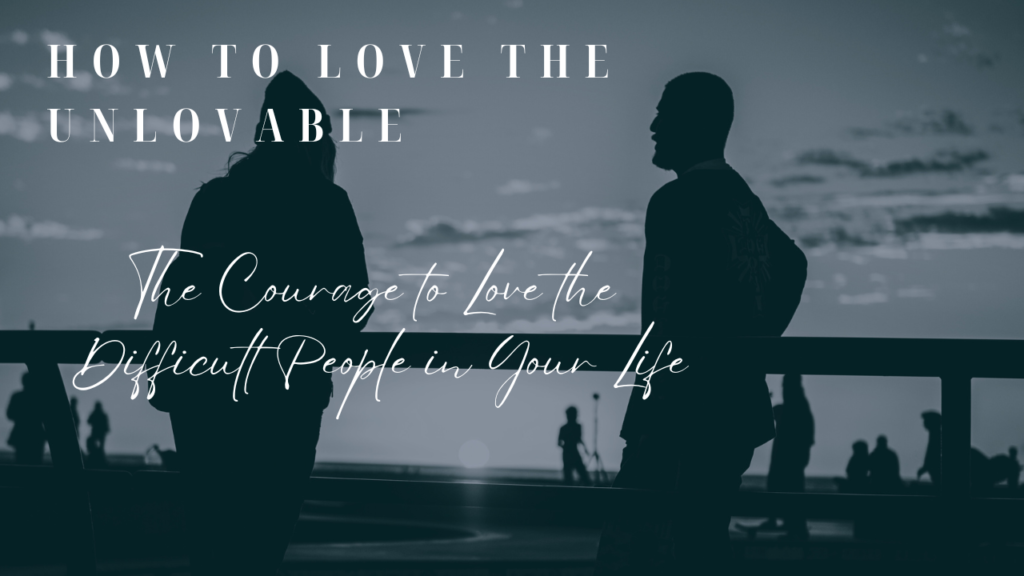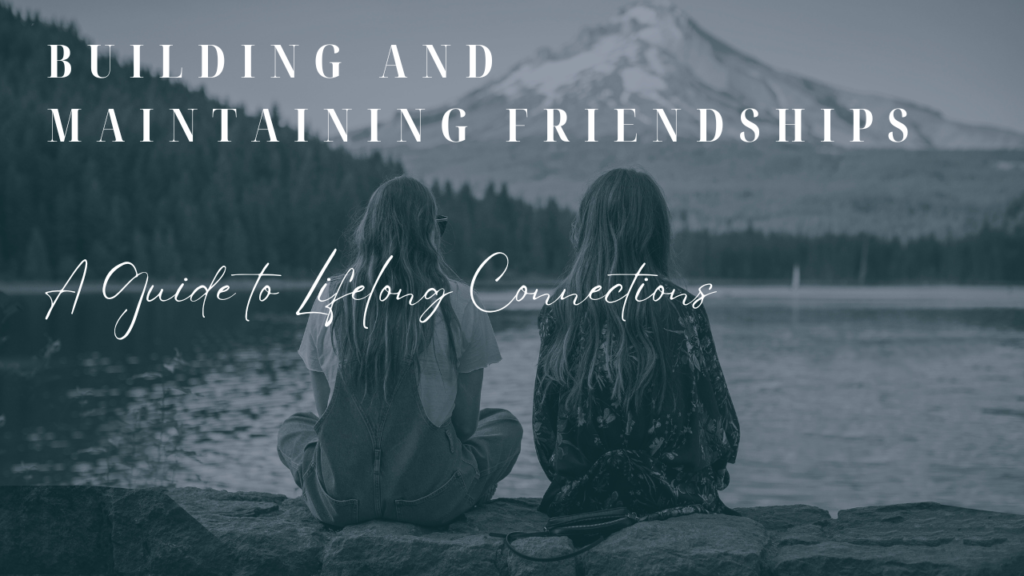How to Love the Unlovable
Some people are just hard to love. Not because you’re impatient or unkind, but because they test every boundary you have. They’re abrasive, selfish, manipulative, exhausting. They take without giving. They twist words. They don’t apologize. They make you feel like you’re the one who’s crazy when deep down, you know you’re not. And then you sit in church and hear about loving your enemies. Turning the other cheek. Walking the extra mile. You read the verses. You know what Jesus said. You want to obey. But the moment you’re around that person again—the one who pushes every button you didn’t even know you had—it all flies out the window. Because it’s one thing to love people who are difficult. But the truly unlovable? The ones who feel toxic, unsafe, relentless in their dysfunction? That feels impossible. And maybe you’ve wondered if God really expects you to do this. Or if love in those situations means letting yourself get walked on, manipulated, taken advantage of again and again until you’re a shell of who you were. That’s where the confusion comes in. Because most of us were never taught how to love someone without losing ourselves in the process. Start By Redefining What Love Really Is Love isn’t being nice all the time. It’s not putting on a smile and pretending everything’s fine when it’s not. It’s not letting someone mistreat you and calling it “grace.” And it’s definitely not codependency wrapped in Christian language. Real love—the kind that comes from God—is way stronger than that. It tells the truth. It draws lines. It endures, yes—but it also protects. It seeks the good of the other person, even when that means saying hard things or stepping away when necessary. Loving someone doesn’t mean giving them unlimited access to you. It means seeing them through God’s eyes, not your own pain, and choosing to respond from the Spirit, not your emotions. That’s where it gets hard. Because your emotions will tell you to run. To get even. To shut them out and never look back. But love—real, Spirit-led love—tells you to do something deeper. Not easier. Deeper. And that’s where the work begins. See the Person, Not Just the Problem When someone hurts you, it’s easy to reduce them to the worst version of themselves. You stop seeing the image of God in them and only see what they did, what they keep doing, or how they make you feel. You turn them into a caricature of every offense, every harsh word, every manipulation. But people are rarely just one thing. They’re complicated. They’ve got their own trauma. Their own blind spots. Their own stories that shaped them, warped them, maybe even hardened them beyond what they know how to fix. That doesn’t excuse behavior. But it does invite compassion. And sometimes the only way to soften your heart enough to love someone hard to love is to ask a different question—not “What’s wrong with them?” but “What happened to them?” It doesn’t make them safe. But it helps you stay human. Because once you lose compassion, you start to lose your capacity to love. And the bitterness doesn’t just lock them out—it locks you in. Forgiveness Is the Front Door to Love You can’t love someone well if you’re still stewing in resentment. You can fake it. You can force it. You can put on a Christian mask and say the right words. But underneath, your heart will be closed off. Cold. Protected. Forgiveness doesn’t mean trust. It doesn’t mean reconciliation. It doesn’t mean pretending nothing happened. It just means you’re not going to carry the debt anymore. You’re not going to let what they did keep poisoning your mind. You’re not going to keep writing the script where they finally see what they did and apologize the exact way you needed them to. You let go. Not for their sake. For yours. Because once that grip loosens, love has a chance to do what it’s supposed to do—flow freely, without being chained to what happened yesterday. That doesn’t mean it doesn’t still hurt. But it means the hurt isn’t running the show anymore. Don’t Confuse Boundaries with Bitterness This is where a lot of people swing too far. They either love with no limits and get wrecked in the process, or they build walls so high no one can reach them—not even the people who mean well. But there’s a difference between walls and boundaries. Walls are built out of fear. Boundaries are built out of wisdom. And if someone consistently harms you, disrespects you, manipulates you—you’re not less spiritual for creating distance. You’re not being unloving by refusing to engage in chaos. Sometimes the most loving thing you can do is walk away with peace instead of staying and growing bitter. Love doesn’t mean enabling. It means choosing what’s redemptive. Sometimes that means staying in the hard conversation. Other times it means stepping back and letting God do the work without your constant involvement. Jesus loved perfectly, and He still walked away from people. Still called out sin. Still said no. So can you. You Need the Spirit to Pull This Off If you try to love the unlovable in your own strength, you will fail. You’ll lose your patience. You’ll take it personally. You’ll become resentful. You’ll either lash out or shut down. Because this kind of love doesn’t come from willpower. It comes from being connected to the source of love itself—Christ. You cannot give what you haven’t received. So if love has run dry, that’s not a guilt trip. It’s an invitation. To go back to Him. To sit in His presence. To be reminded of how deeply you’ve been forgiven. How undeserving you were when He called you His. How patient He was when you kept falling in the same ways. And then, from that place—not pressure, not performance—you begin to love others from the overflow. Even the hard ones. Especially the hard
How to Love the Unlovable Read More »


